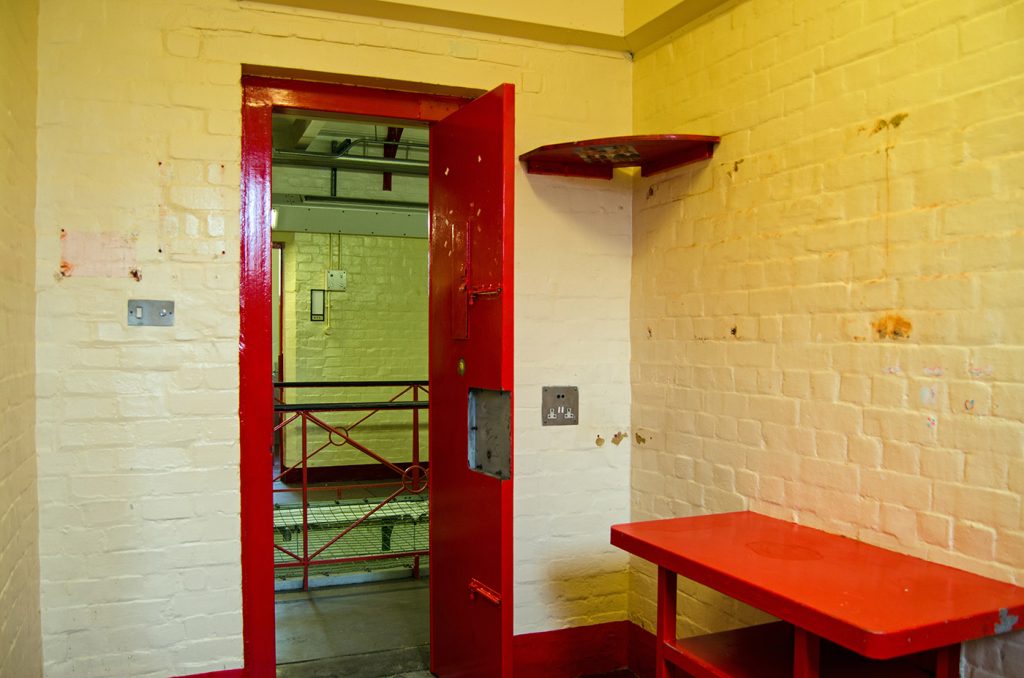
The Center for Constitutional Rights (CCR) and Yale Law School’s Allard K. Lowenstein’s International Human Rights Clinic recently released a report condemning the use of so-called Special Administrative Measures (SAMs), arguing that they violate International and US Laws.
SAMs involve the extreme isolation of individuals, who may or may not be convicted of a crime. The report builds on scholarship and first-hand accounts surrounding the horrors of solitary confinement, a practice that many have defined as a form of torture and that currently affects nearly 80,000 incarcerated people.
Dickens
Many have noted the moral decadence of US prisons, including Charles Dickens, who famously said, “I believe that very few men are capable of estimating the immense amount of torture and agony which this dreadful punishment, prolonged for years, inflicts upon the sufferers […] I am only the more convinced that there is a depth of terrible endurance in which none but the sufferers themselves can fathom, and which no man has a right to inflict upon his fellow creature.” That’s the epigraph to the recent CCR study, evincing the point of view of the researchers.
International Perspective
It’s not really a radical position to take. Solitary confinement has already been condemned by the UN. In 2011, then-UN Special Rapporteur on torture Juan E. Méndez was unequivocal in his speech to a General Assembly committee: “Segregation, isolation, separation, cellular, lockdown, Supermax, the hole, Secure Housing Unit… whatever the name, solitary confinement should be banned by States as a punishment or extortion technique.” Specifically, he said confinement of an individual for more than 15 days should be prohibited absolutely, as a person can suffer irreversible damage to their mental health.
It Gets Worse
For this reason, it is deeply concerning that SAMs have begun to surface as the next wave of extreme punitive isolation. It is difficult to imagine how solitary confinement could be worse than it already is. But the federal government has, in its infinite imagination, devised a means of torture that effectively impedes a prisoner’s access to the outside world.
The Rules
According to the CCR’s report, even in solitary confinement, detainees are permitted to speak to other prisoners through drains and by other unofficial means. Under SAMs, a person is cut-off from these forms of communication.
SAM rules are numerous and cruel: the prisoner is not permitted access to current media or news sources; they are only allowed to speak with their attorney; all attorney-client interactions may be monitored by the FBI; the prisoner, their family members and the attorney are given gag orders, meaning SAMs are, for the most part, kept out of the public eye; and to make matters worse, the US Attorney General is the only person permitted to implement these measures and is not required to disclose the reasons for using SAMs.
Analysis
The Intercept published an incisive review of the CCR’s report, noting that, by and large, those who suffer under SAMs are Muslim and connected to so-called “national security” concerns. In some cases, the federal government uses these measures to coerce defendants being held in detention into entering a guilty plea. And, as highlighted by The Intercept, courts often uphold SAMs due to national security risks.
More to Come
This form of torture was first employed in 1996 following the Oklahoma City Bombing. Though SAMs emerged in a pre-9/11 world, their use in a post-9/11 world is disconcerting to say the least, especially considering the current status of the federal government.
Our current President, Donald Trump, has unequivocally supported torture, saying we need it because “we have to beat the savages.” And AG Jeff Sessions, who has unfettered control over the imposition of SAMs, has been more adept, refusing to say whether waterboarding is a form of torture. This refusal combined with his open embrace of “law and order” policies could indicate that the use of SAMs will only increase in the years to come.



Leave a Comment